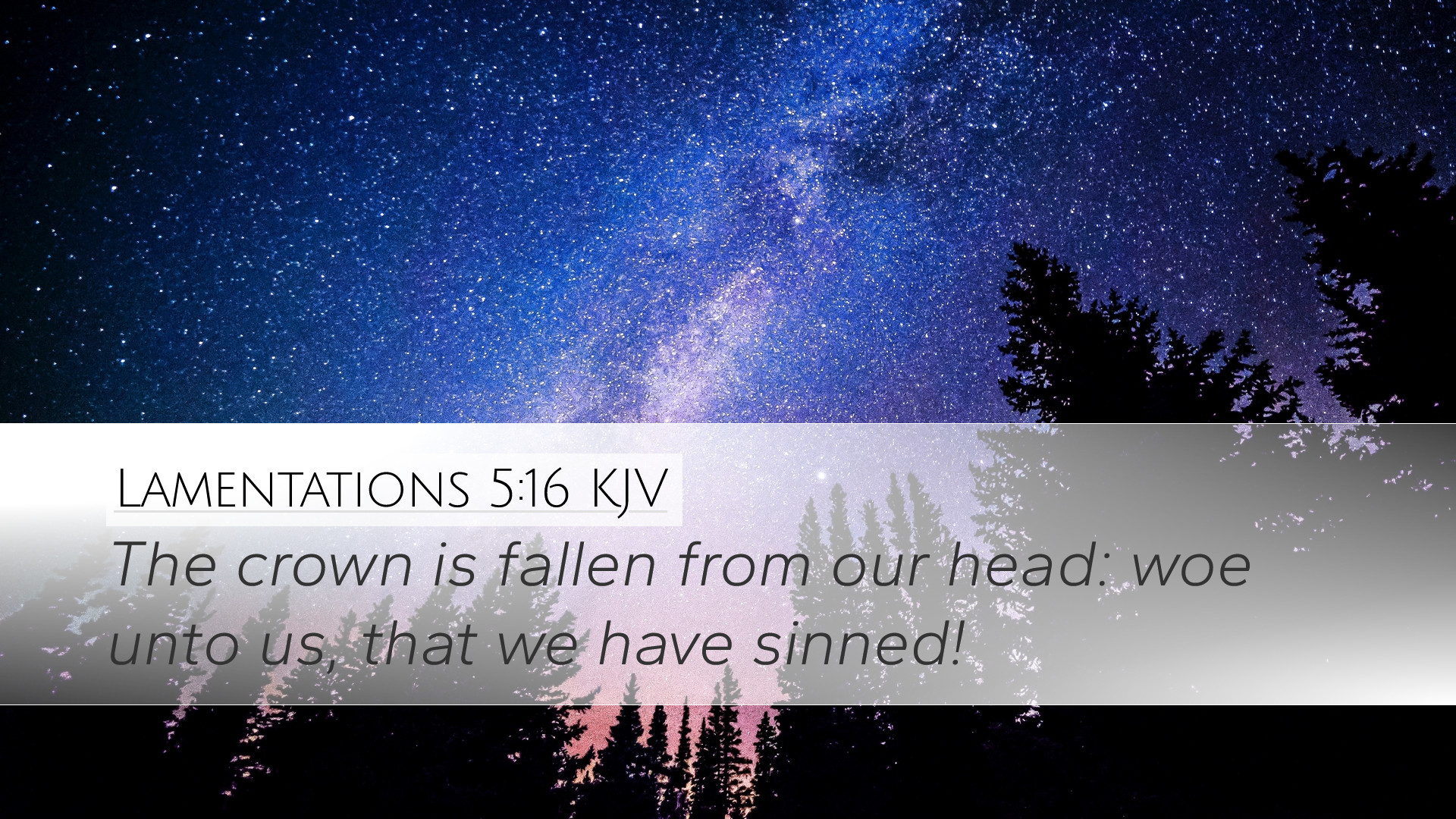Old Testament
Genesis Exodus Leviticus Numbers Deuteronomy Joshua Judges Ruth 1 Samuel 2 Samuel 1 Kings 2 Kings 1 Chronicles 2 Chronicles Ezra Nehemiah Esther Job Psalms Proverbs Ecclesiastes Song of Solomon Isaiah Jeremiah Lamentations Ezekiel Daniel Hosea Joel Amos Obadiah Jonah Micah Nahum Habakkuk Zephaniah Haggai Zechariah MalachiVerse
Lamentations 5:1 Lamentations 5:2 Lamentations 5:3 Lamentations 5:4 Lamentations 5:5 Lamentations 5:6 Lamentations 5:7 Lamentations 5:8 Lamentations 5:9 Lamentations 5:10 Lamentations 5:11 Lamentations 5:12 Lamentations 5:13 Lamentations 5:14 Lamentations 5:15 Lamentations 5:16 Lamentations 5:17 Lamentations 5:18 Lamentations 5:19 Lamentations 5:20 Lamentations 5:21 Lamentations 5:22

